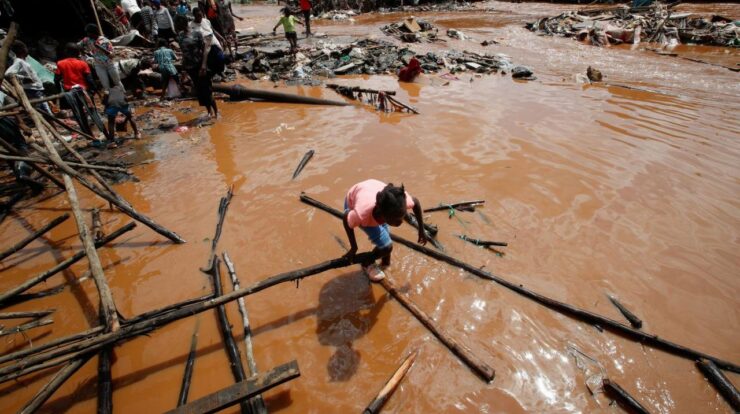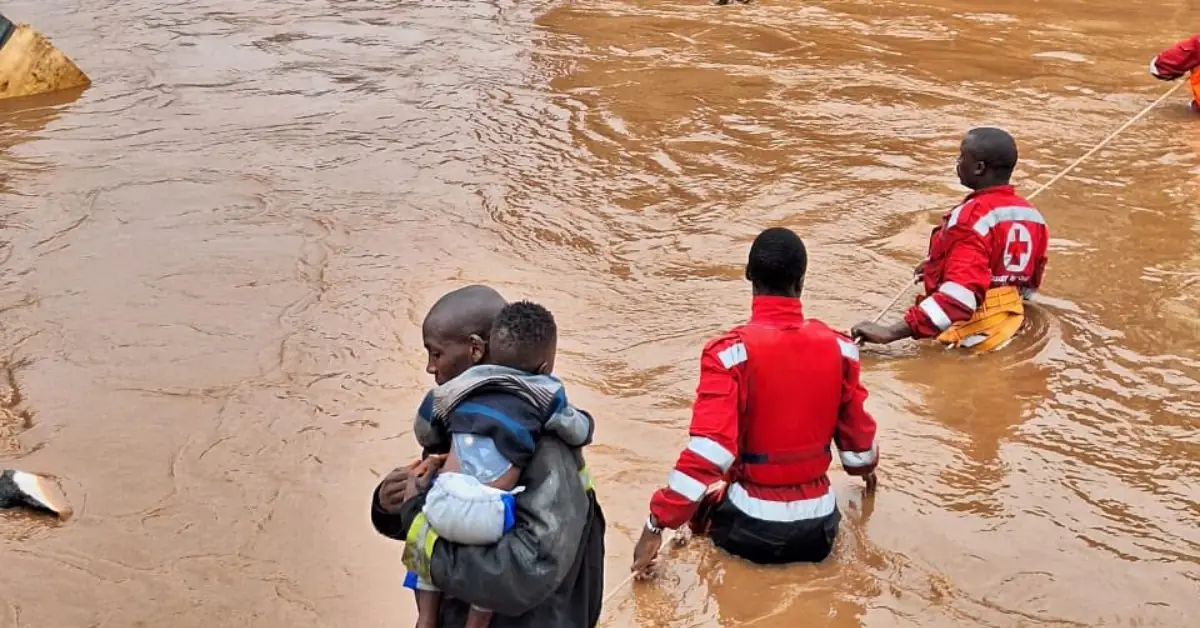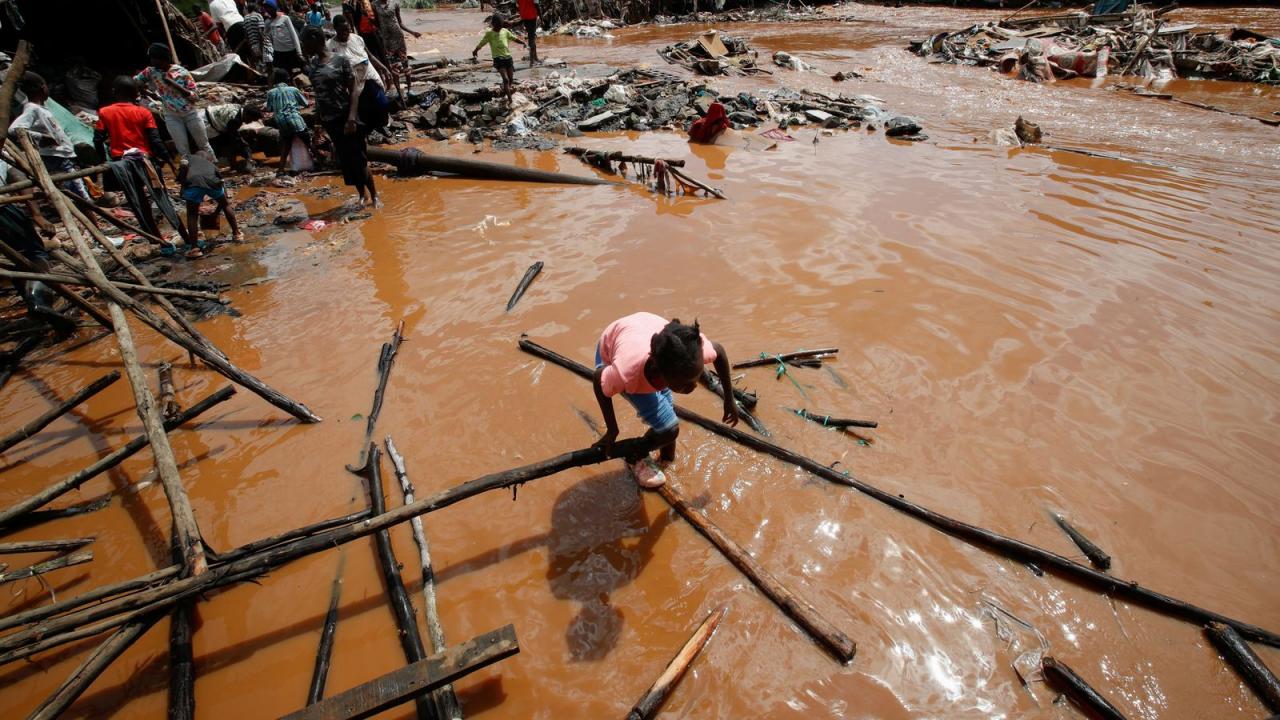
Kenya nairobi flooding – Kenya’s capital city, Nairobi, has been grappling with the devastating effects of flooding for decades. This article delves into the history of flooding in Nairobi, exploring its causes and consequences, and examining the strategies being implemented to mitigate and adapt to this ongoing challenge.
Nairobi’s rapid urbanization, coupled with poor drainage systems and the impacts of climate change, has exacerbated the frequency and severity of flooding in the city. The consequences of these floods are far-reaching, affecting infrastructure, the economy, and the well-being of Nairobi’s residents.
Historical Impact of Flooding in Nairobi
Nairobi has a long history of flooding, with major events occurring in 1997, 2006, 2013, and 2018. These floods have caused widespread damage to infrastructure, property, and livelihoods.
The 1997 floods were the most severe in Nairobi’s history, affecting over 300,000 people. The floods were caused by heavy rainfall that overwhelmed the city’s drainage system. The floods caused widespread damage to homes, businesses, and infrastructure. They also led to the deaths of over 100 people.
The 2006 floods were also severe, affecting over 200,000 people. The floods were caused by heavy rainfall that lasted for several days. The floods caused widespread damage to homes, businesses, and infrastructure. They also led to the deaths of over 50 people.
The 2013 floods were less severe than the 1997 and 2006 floods, but they still affected over 100,000 people. The floods were caused by heavy rainfall that lasted for several days. The floods caused widespread damage to homes, businesses, and infrastructure.
They also led to the deaths of over 20 people.
The 2018 floods were the most recent major floods in Nairobi. The floods were caused by heavy rainfall that lasted for several days. The floods caused widespread damage to homes, businesses, and infrastructure. They also led to the deaths of over 10 people.
Causes of Flooding in Nairobi

The primary causes of flooding in Nairobi are urbanization, poor drainage systems, and climate change.
Urbanization has led to an increase in the amount of impervious surfaces in Nairobi. Impervious surfaces, such as roads and buildings, prevent water from infiltrating the ground. This can lead to flooding when there is heavy rainfall.
Nairobi’s drainage system is also inadequate. The system is not able to handle the volume of water that is generated during heavy rainfall. This can lead to flooding in low-lying areas.
Climate change is also a contributing factor to flooding in Nairobi. Climate change is leading to an increase in the frequency and intensity of extreme weather events, such as heavy rainfall. This can lead to flooding in areas that are not normally prone to flooding.
Consequences of Flooding in Nairobi
Flooding can have a devastating impact on Nairobi. The floods can cause damage to infrastructure, property, and livelihoods. They can also lead to the spread of disease.
Flooding can damage roads, bridges, and other infrastructure. This can disrupt transportation and make it difficult for people to get to work, school, and other essential services.
Flooding can also damage homes and businesses. This can lead to financial losses and displacement. Flooding can also damage crops and livestock, which can lead to food shortages.
Flooding can also lead to the spread of disease. Standing water can provide a breeding ground for mosquitoes, which can transmit diseases such as malaria and dengue fever.
Outcome Summary: Kenya Nairobi Flooding

Addressing the issue of flooding in Nairobi requires a multi-faceted approach involving stakeholders from government, civil society, and the community. By investing in flood mitigation and adaptation strategies, implementing sustainable land-use practices, and fostering collaboration among stakeholders, Nairobi can build resilience to future flooding events and ensure a safer and more sustainable future for its citizens.
Common Queries
What are the main causes of flooding in Nairobi?
The primary causes of flooding in Nairobi include rapid urbanization, inadequate drainage systems, and the impacts of climate change, such as increased rainfall intensity and variability.
What are the consequences of flooding in Nairobi?
Flooding in Nairobi has severe consequences, including damage to infrastructure, disruption of transportation and economic activities, displacement of residents, and increased risk of waterborne diseases.
What is being done to address flooding in Nairobi?
Efforts to address flooding in Nairobi include implementing flood mitigation measures such as drainage improvements and constructing dams, promoting sustainable land-use practices to reduce runoff, and raising awareness about flood risks and preparedness.





